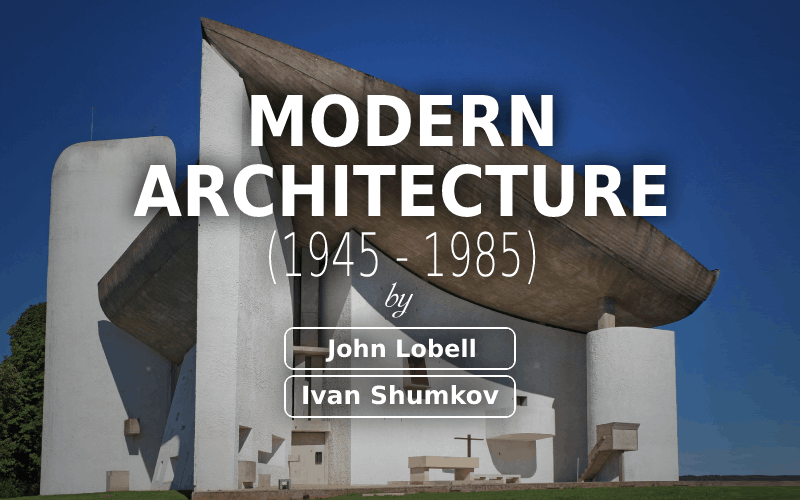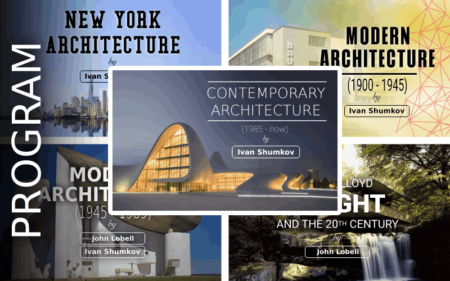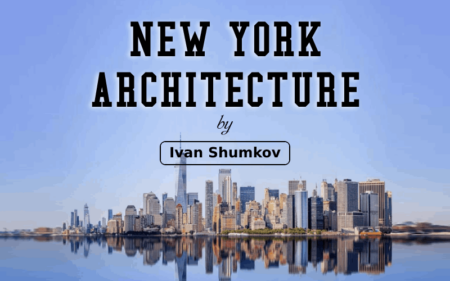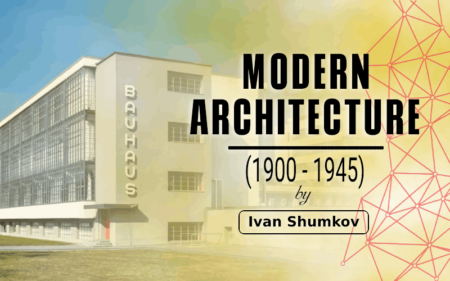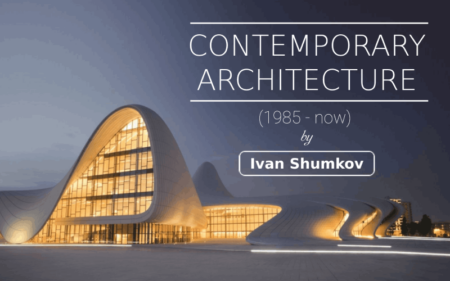Description
By familiarizing participants with the history of architecture, and by illustrating the broad scope and uses of architectural history and theory, this course also provides an invaluable guide to understanding 20th century architecture.
Learning Objectives
The study of architectural history and theory is important for understanding the built environment we live in and how it is designed. The knowledge of architectural history complements the projects and research of the design practice by analyzing historical precedents for design, investigating their meaning, and evaluating them as formal or programmatic models. Throughout history, architecture has vividly reflected the cultures in which it evolved and the social, economic, and geophysical conditions that shaped it. Even today, many issues with which architects are currently concerned can be considered outgrowths of previous historical developments. Thus, studying the architecture of the past gives the course participants a focused historical lens through which to understand contemporary architecture and cities.
Workload
You are expected to spend 2-3 hours per week with your computer and a few more reading and exploring your city.
Modern Architecture Course Materials
The course will feature video lectures, quizzes, readings, discussion board, peer-to-peer review, and virtual meetings. The main textbook for the course will be:
Kenneth Frampton, Modern Architecture: A Critical History, London: Thames and Hudson, 2007.
Alan Colquhoun. Modern Architecture. New York: Oxford University Press, 2002.
William J.R. Curtis. Modern Architecture since 1900, London: Phaidon Press, 1996.
Each course section will include additional reading from primary and secondary sources.
Assessments
Students will conduce research and critical analysis of architecture. They will analyze and comment on the projects presented in each chapter of the course. Each course section will be followed by a short quiz, verifying the understanding of the course materials. As part of the course, they will also explore buildings in the cities where they live and visit, according to the concepts introduced in the course, by taking pictures and making videos.
A short final paper will evaluate the knowledge acquired in the course. It will consist of a 2-3 page essay on a series of topics will be distributed in the course of the semester. Students may choose an alternative topic, but they must discuss this topic and have it approved by course professor. In preparation for this essay, the student should use primary and secondary texts. All students writing a paper should submit a preliminary description of the topic, whether on the list or not, and complete bibliography in advance.
Certification
The course certificate by Build Academy could be purchased separately by people who complete the course. The two certificates available for the course are: basic, CEU-CPD. You can include the certificate in your CV and LinkedIn profile. We can also provide you with reference letters for job or school applications and promotions.
Modern Architecture course prerequisites
The course is both for the general public and for people with experience in architecture, so any person can take it. Basic knowledge of architecture is recommended but not necessary. If you were already a student of architecture, this would be a way to expand and further your studies in a global context. If you are already an architect, you can learn about the fundamentals of the profession through the studies of modern architecture and be inspired for your work. If you have general cultural curiosity about architecture, this course will introduce you to some basic concepts that would allow you to understand better the values and importance of architecture.
Professor
Prof. John Lobell
John Lobell is a professor of architecture at Pratt Institute in Brooklyn, New York, where he teaches courses in the history and theory of architecture, including a course on Frank Lloyd Wright. He also teaches courses on the cultural and social impact of new technologies, addressing how they change our consciousness, which in turn leads to paradigm shifts that affect every aspect of our lives. Lobell received his architecture degrees from the University of Pennsylvania. He has lectured and addressed conferences around the world, and is the author numerous articles and of several books, including Between Silence and Light: Spirit in the Architecture of Louis I.
Prof. Ivan R. Shumkov PhD
Dr. Ivan Shumkov is a New York based architect, professor, curator, leader in online design education, and the founder of Open Online Academy. He has taught architecture, design, history and theory at Harvard University GSD, Pratt Institute School of Architecture, Parsons the new School for Design, International University of Catalonia, and ETSA Barcelona. He is a member of the Board of Directors of Harvard Alumni Association and President of Harvard Architectural and Urban Society Alumni. He graduated with masters degrees from ETSA Barcelona, University of Florence, and Harvard University GSD, as a Fulbright scholar. He completed his PhD in Architecture at the Polytechnic University of Catalonia and Columbia University GSAPP, as fellow of the Fondation Le Corbusier. Dr. Shumkov is a licensed architect in Spain and Italy and principal of ISA – Ivan Shumkov Architects, a company working in the fields of architecture, urbanism, landscape and design with offices in New York and Barcelona. He has worked, lectured and exhibited his projects and research in Europe, Brazil, Colombia, China, and the USA.

